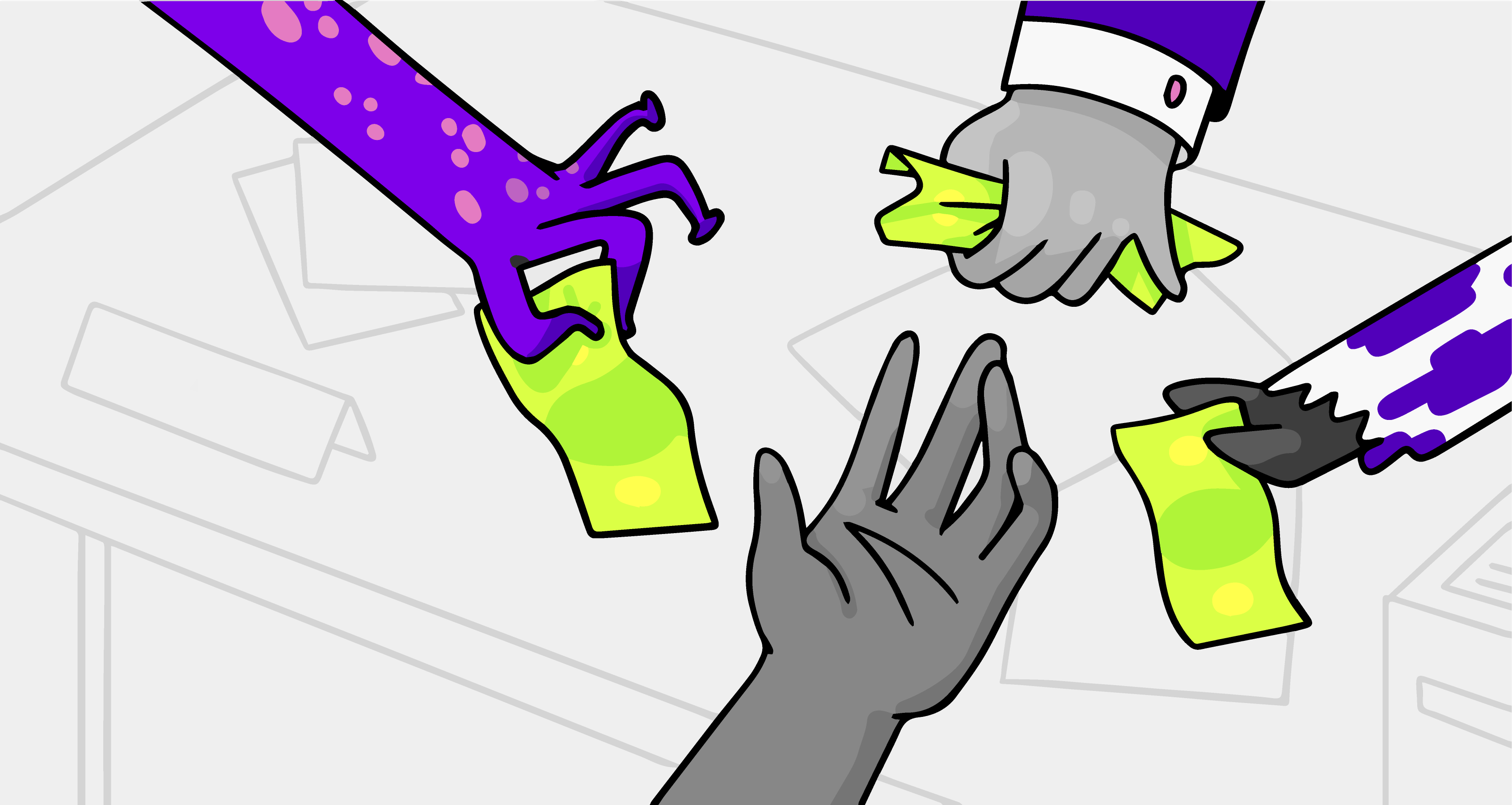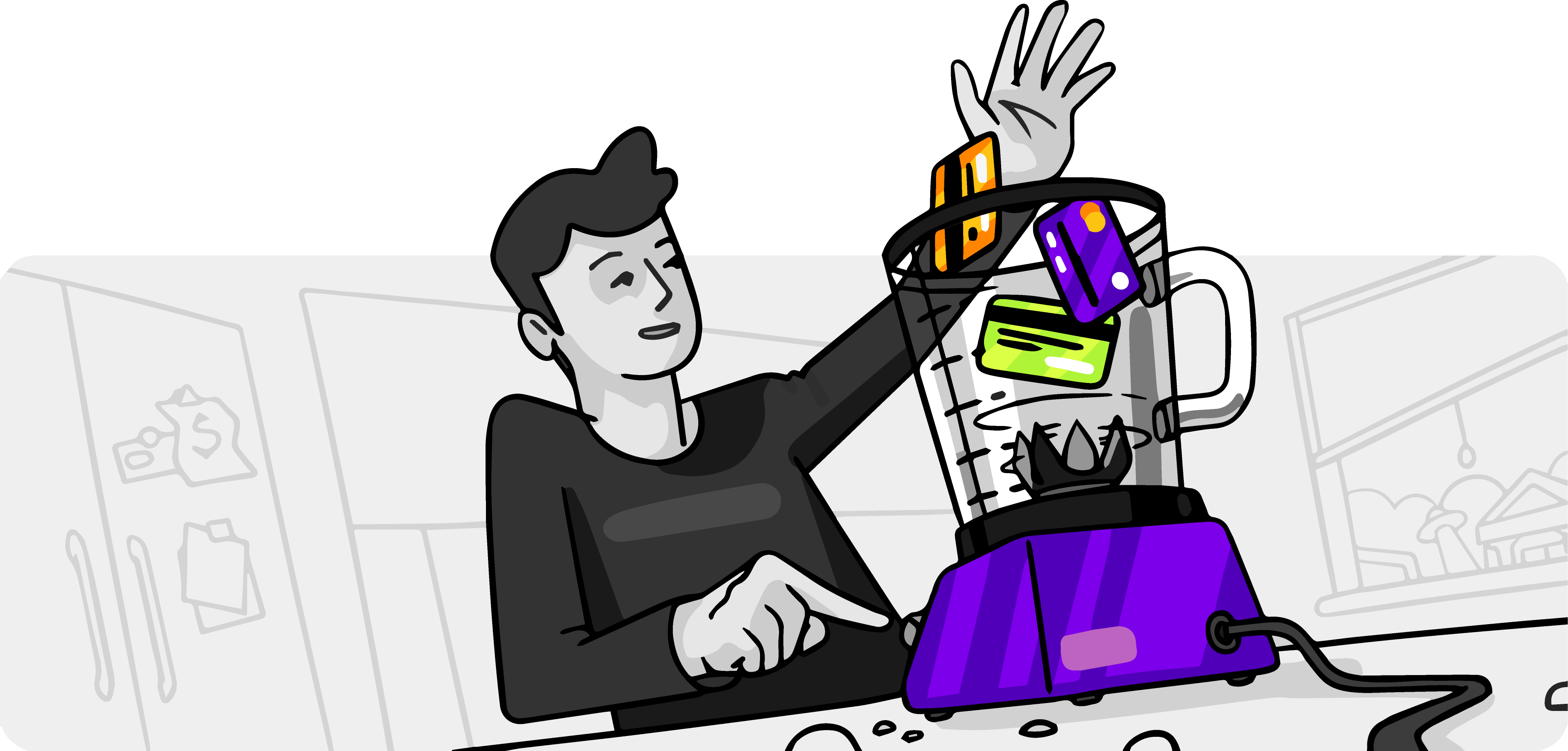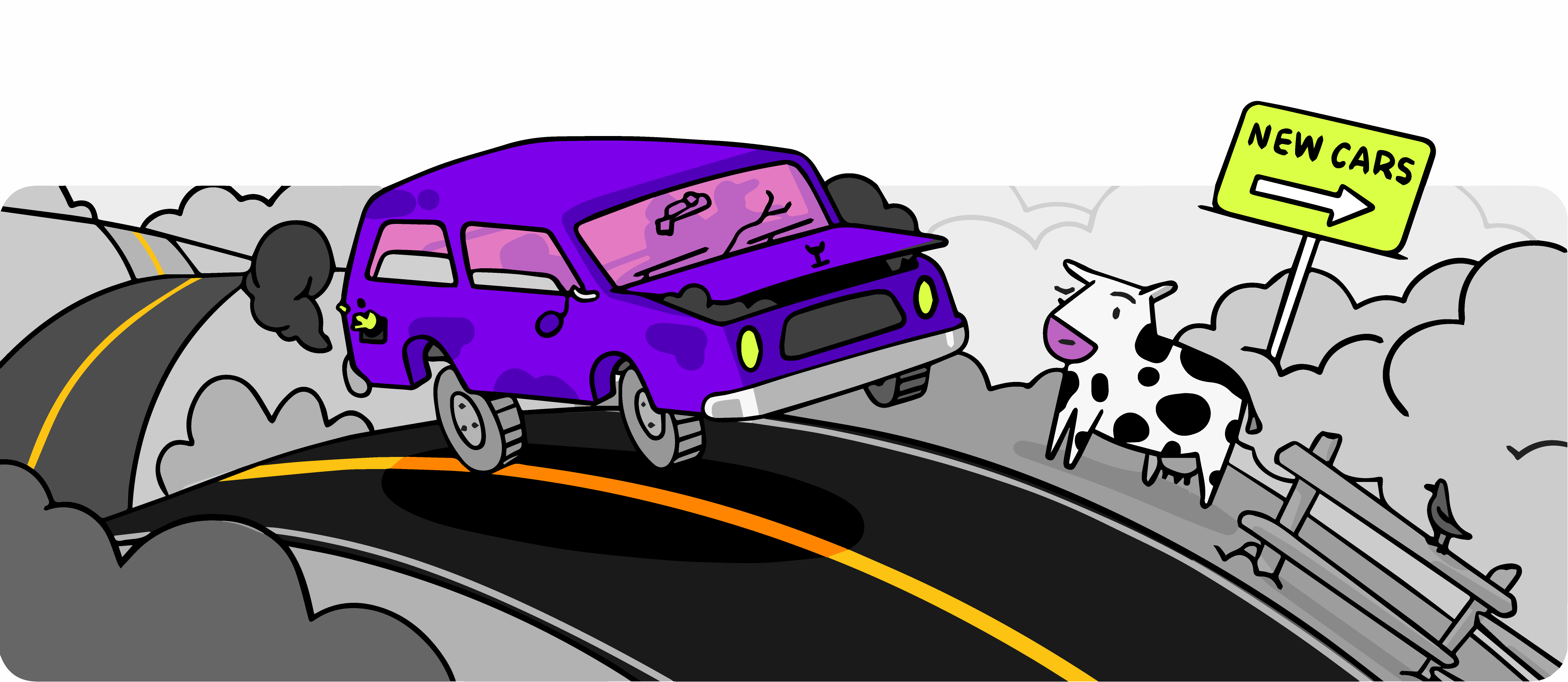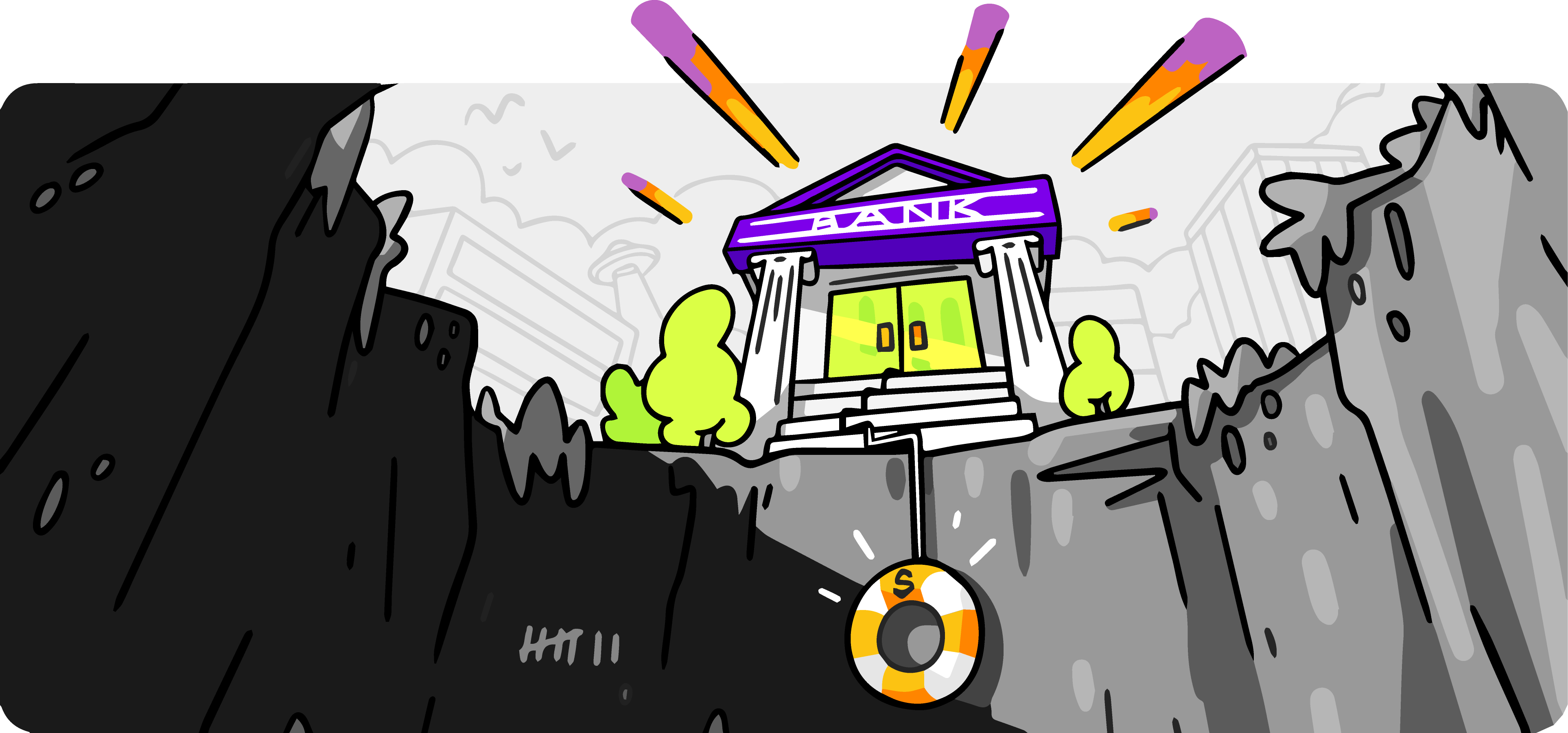Loans can help with everything from starting a business, going to school or just feeding your family, but if you’re not careful they can cost you big time.
While the allure of extra money can be enticing, not understanding concepts, such as credit and interest, can lead you to take on unnecessary debt, or spiral further down the rabbit hole.
Before you leap into a loan, learn about all the different types. We’ll help you figure out which works best for you without having to worry about whether it’ll cost you an arm and a leg.

Types of loans
During the last quarter of 2022, total consumer debt rose to $2.37 trillion (including mortgages). According to the latest Equifax® Canada Market Pulse, that’s an increase of 6.2 percent from the same period in 2021.
And while borrowing money is a common thing for most Canadian households, what type of loan they choose should depend on a variety of factors, including:
- How much money they need
-
What it will be used for
-
How long they need to borrow for
-
Personal details like their credit score
Student loans
The federal government has two programs that may help you fund your education: the Canada Student Loan Program (CSLP) or grants from the Canada Student Grants Program (CSGP). If you’ve exhausted your federal financial assistance options, there may be additional support available from the province or territory in which you reside. You could also consider looking into private options, such as school loans or lines of credit from banks or credit unions.
Student loan forgiveness in Canada
Millennials are burdened with high levels of student loan debt, with the average amount coming in at around $16,725. In fact, student loan debt was the primary contributor to the debt loads carried by this generation. Additionally, a significant number of students (around 330,000) had to enter the Repayment Assistance Plan (RAP) because they were unable to afford their loan payments. Although the government of Canada does not provide any student loan forgiveness programs except for bankruptcy, there are some programs available to assist students with their debts.
Personal loans
What is a personal loan?
A personal loan is a type of long-term financing plan where you borrow a fixed amount of money and agree to pay it back over a period of time with regular payments (instalments). In addition to the full amount borrowed, you also have to pay interest and any applicable fees. Personal loans - also known as instalment loans or consumer loans - are often used for specific purchases like home renovations, furniture, or cars. They can also be used to consolidate other debts with higher interest rates. Most personal loans range from $100 to $50,000 with a term between six and 60 months.

Secured loans
A secured personal loan requires collateral, typically in the form of your home. This is different from an unsecured personal loan, which is backed by a signed contract. By securing your loan with your home equity, you can access a lower interest rate and more affordable loan payments. You can use a secured loan for a variety of purposes, including debt consolidation, unexpected expenses and home repairs.
Should you lend money to a friend?
When it comes to lending money to friends, it's important to be aware of the risks involved. Although it may seem like a good idea to turn to someone you know and trust, lending to loved ones can often lead to complications. To protect yourself and your relationship, it's a good idea to put the loan agreement in writing. By getting all the details down on paper and having everyone involved sign the document, you can avoid misunderstandings and conflicts down the line.

Consolidation loan
A consolidation loan is a great option for you if you are managing multiple credit sources and struggling to keep up with their payments and interest rates.
Consolidations loans pool all your credit debt into one neat little pile with a single, manageable payment and a single, manageable interest rate that will be lower than most if not all of your existing credit accounts.
Not only will a consolidation loan simplify your finances by leaving you with a single, fixed monthly payment, but they come with the added benefit of a set end date. If you want accountability and opportunity to pay off your debts by a certain date, the fixed nature of a consolidation loan can help.

Car loans
When looking to obtain a car loan, there are multiple avenues to explore. While applying for a loan at the dealership is a popular choice, it’s not the only option. You can also apply for a car loan directly through a bank or, in some instances, online. Regardless of where you apply, you’ll need to provide documentation such as pay stubs, income tax assessments as proof of income and a valid Canadian driver’s license.
What’s a good credit score to buy a car?
In the past, having a strong credit score was a requirement for accessing mainstream credit. However, lenders have since realized that many hardworking individuals may not have a perfect score despite making timely payments and following financial best practices. Now, a credit score of 650 or higher is generally considered good for securing a car loan. It's worth noting that the two credit agencies operating in this area, TransUnion and Equifax, calculate scores slightly differently, so your score may vary between them.

Payday loans
Payday loans are short-term, high interest loans, meant to fill a financial gap between, you guessed it, pay days.
They are a risky option given the immense cost to borrow and often lead to a cycle of borrowing to pay back the previous loan.
Payday loans in Canada are governed by both federal and provincial regulations to reduce the risk to borrowers.
Bad credit loans
Credit scores can range from 300 to 900, with a score of 560 or below being considered bad credit by Equifax. However, having bad credit doesn't have to prevent you from obtaining financing, and you may be able to use a new loan as an opportunity to rebuild your credit. Keep in mind that loans for those with bad credit often come with higher interest rates, so it's important to be prepared for this added cost.
Loans for homeowners in Canada
If you own a home and you’ve built up some equity, you’ll be happy to hear you have loan options.
That’s because you can take out one of two types of loans that allow homeowners to borrow against their home’s equity.
Home equity loans and home equity lines of credit (HELOCs) are a way for homeowners to tap into the equity of their homes to help fund a major expense, such as a home renovation or a child’s education.
They are considered second mortgages and secured loans, with your home put up as the collateral. But the way you access money — and how you’re expected to pay it back — make these two different products.
Home equity loan
After the loan is approved, your lender either cuts a cheque for the lump sum or wires funds to your bank account. You then repay the loan over time, often five to 30 years, in equal monthly installments.
Your interest rates are also fixed, which means your payments won’t change over the life of the loan. And because your home is used as collateral, these loans tend to have lower interest rates compared to their unsecured counterparts.
The interest may also be tax-deductible. If you use the loan to "substantially improve" your home, Canada Revenue Agency allows you to deduct the interest payments on your taxes.
However, keep in mind that this is a “second mortgage.” Like a first mortgage or a refinance, home equity loans come with closing costs. These are usually equivalent to 2% to 5% of the loan amount, and you may choose to roll the costs into your loan amount.
Home Equity Line of Credit (HELOC)
Most HELOCs allow you to borrow from the account during a draw period, usually around between 5 and 15 years,. Once you hit your credit limit, you can pay down the line and borrow from it again. As with a credit card, you pay interest only on the money you're using.
At the end of the draw period you enter the "repayment period," when the borrower has to start repaying the loan principal as well.
The great thing about HELOCs is you might not know upfront how much money you want to borrow, but these loans allow you to withdraw what you need, only when you need it. Some lenders even waive closing costs and fees, though you might need to meet eligibility requirements.
But because your interest rate is variable, it could increase anytime — and so will your payments. Plus, depending on the lender, you may pay annual fees, transaction fees on each withdrawal and closing costs. Some even come with a balloon payment, where you make one large payment toward the end.
More: HELOC or home equity loan
How to get a loan
Whether it’s for a mortgage, an auto loan, or even a new credit card, having a good credit score is essential for getting any type of loan.
Your credit score is a rating that measures how good you are at paying back your debts. The score ranges from 300 to 900, and the higher your score, the better your rating is.
So how do you get the best possible credit rating? The simple answer is pay off your debts on time without accruing any interest.
If you have a credit card, use it, but make sure you make all your payments on time. If you can’t pay off your whole debt all at once, paying more than the monthly minimum is the second best thing you can do.
Just by using your credit card and paying it back shows how you manage your debts. To further demonstrate your fiscal responsibility, keep your credit use to within only 30% of your card’s maximum allowance. For example, if your card has a credit limit of $10,000, only use $3,000 of it at any time.
If you want to know what your credit score is, Equifax and TransUnion will provide you with a certain number of free credit checks yearly. You may also have heard that simply checking your credit score will lower it, but this isn’t true.
Your credit score will be lowered if you make a “hard inquiry” for example, applying for a new loan. When you do so, the prospective lender will reach out to check your credit history. This can lower your score by several points and stay on your report for up to three years. A “soft inquiry,” which doesn’t involve applying for any new loans or credit, won’t affect your score.
Read: Loans for ODSP

Sigrid’s is Money.ca's associate editor, and she has also worked as a reporter and staff writer on the Money.ca team.
Explore the latest articles

Can you still get a car loan after bankruptcy?
Bankruptcy is a chapter, but your book is far from over.

Disclaimer
The content provided on Money.ca is information to help users become financially literate. It is neither tax nor legal advice, is not intended to be relied upon as a forecast, research or investment advice, and is not a recommendation, offer or solicitation to buy or sell any securities or to adopt any investment strategy. Tax, investment and all other decisions should be made, as appropriate, only with guidance from a qualified professional. We make no representation or warranty of any kind, either express or implied, with respect to the data provided, the timeliness thereof, the results to be obtained by the use thereof or any other matter. Advertisers are not responsible for the content of this site, including any editorials or reviews that may appear on this site. For complete and current information on any advertiser product, please visit their website.
†Terms and Conditions apply.


